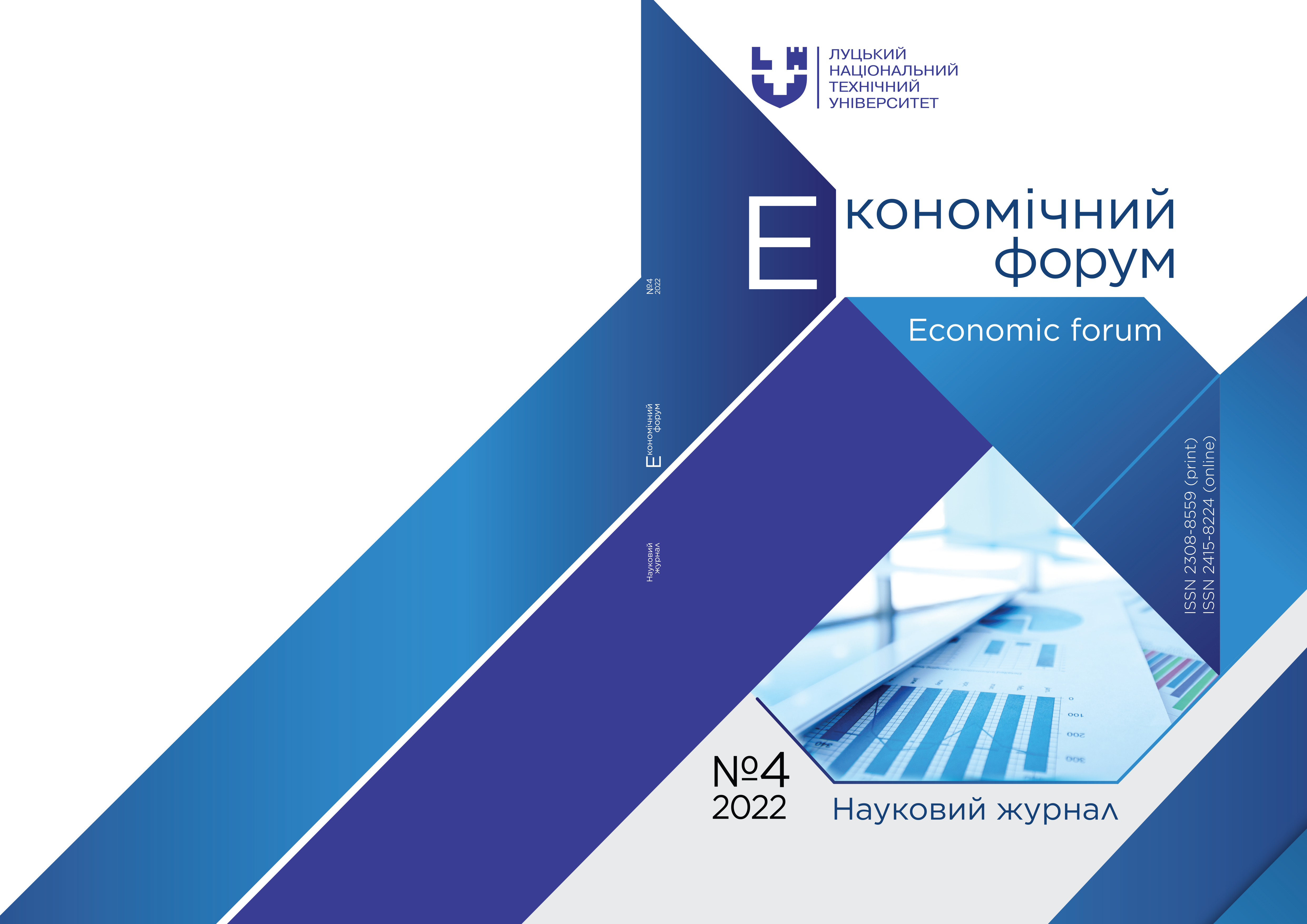APPLICATION OF CRM-TECHNOLOGY TO AUTOMATE THE PROCESSES OF INTERACTION WITH CONSUMERS OF A SERVICE INSTITUTION
Abstract
The article examines the problem of the possibility and necessity of using CRM technology to automate service processes and interaction with consumers of a service institution. The main purpose of the study is to substantiate the need to use CRM technology to automate service processes and interact with consumers of a service institution in the context of digitalization of marketing. A monographic study of literature sources and approaches to solving this problem has shown that CRM technology emerged as a result of the development of automated enterprise management systems. However, in the future, this technology was reflected and developed for use not only by manufacturing enterprises, but also by enterprises and institutions of all spheres of activity. And the development of this technology itself is based on automating a wide range of functions and processes of service and interaction with the consumer of the service. The relevance of solving this scientific problem lies in the fact that the use of CRM technology by institutions of services will increase the effectiveness of marketing interactions with consumers of services. The study of the problem is carried out in the following logical sequence: the prerequisites for the creation of CRM technology are determined, its essence is studied, the functions of CRM technology are highlighted, the interaction processes that are subject to automation are grouped and classified. The methodological tools of the study were: a systematic approach, logical and structural analysis of process management, methods of analysis and synthesis, logical generalization, comparison, etc. the object of the study was the processes of using CRM technology in a service institution, and the subject was the automation of consumer interaction functions with a service institution based on the application of CRM technology. The article groups the prerequisites for the creation of CRM technology, examines the essence of CRM technology, highlights the functions of CRM technology, groups the processes that are subject to automation and models the interaction of the consumer with the service institution, the study confirms and theoretically proves that the use of CRM technology allows you to increase the effectiveness of marketing interactions between the institution and service consumers. The results of the study can be useful for marketers and managers of service institutions to ensure automation of service processes and interactions with service consumers.
Downloads
References
Yaroshenko, V.A., Podolnaia, V.V. & Heseleva, N.V. (2015) Rol CRM-systembi v marketynhovoi deiatelnosty predpryiatyia [The role of the CRM system in the marketing activity of the enterprise]. VISNYK KNUTD. Seriia «Ekonomichni nauky» Ekonomika ta upravlinnia pidpryiemstvamy - KNUTD BULLETIN. Series "Economic Sciences" Economics and Business Management Economics & Business Management, 3, (87), C. 81-87 [in Ukrainian]
Rigby, D. K. & Ledingham, D. (2004) CRM done right. Harvard business review, 82, P. 118-130. [in English]
Turban, McLean & Wetherbe (2011). Information Technology for Marketing. / John Wiley & Suns, [in English]
Hendricks, K. B., Singhal, V. R. & Stratman, J. K. (2007) The impact of enterprise systems on corporate performance: A study of ERP, SCM, and CRM system implementations. Journal of operations management, 1, C. 65-82. [in English] DOI: https://doi.org/10.1016/j.jom.2006.02.002
Ahn, J. Y., Kim, S. K. & Han, K. S. (2003). On the design concepts for CRM system. Industrial Management & Data Systems. [in English]
Tien, N. H. et al. (2021). The strategy of CRM system development at Mega Market Vietnam. International journal multidisciplinary research and growth evaluation, 4, P. 802-806. [in English]
Greenberg, Paul (2009). CRM at the Speed of Light. McGraw-Hill Osborne Media; 3rd edition (May 3, 2009). [in English] 8.Sharapa, O.M. (2009). Upravlinnia vidnosynamy z kliientamy cherez vprovadzhennia CRM-system yak skladova efektyvnoho vedennia biznesu [Management of relations with clients through the implementation of CRM systems as a component of effective business management], Aktualni problemy ekonomiky - Actual problems of the economy, 7 (97), C. 175-183. [in Ukrainian]
Rababah, K., Mohd, H. & Ibrahim, H. (2011). Customer relationship management (CRM) processes from theory to practice: The pre-implementation plan of CRM system. International Journal of e-Education, e-Business, e-Management and e-Learning, 1, C. 22-27. [in English] DOI: https://doi.org/10.7763/IJEEEE.2011.V1.4
Chatterjee S. et al. (2020). Adoption of artificial intelligence integrated CRM system: an empirical study of Indian organizations. The Bottom Line, [in English] DOI: https://doi.org/10.1108/BL-08-2020-0057
Copyright (c) 2022 Voitovych S., Lorvi I., Bukalo N.

This work is licensed under a Creative Commons Attribution-NonCommercial 4.0 International License.


1.png)








